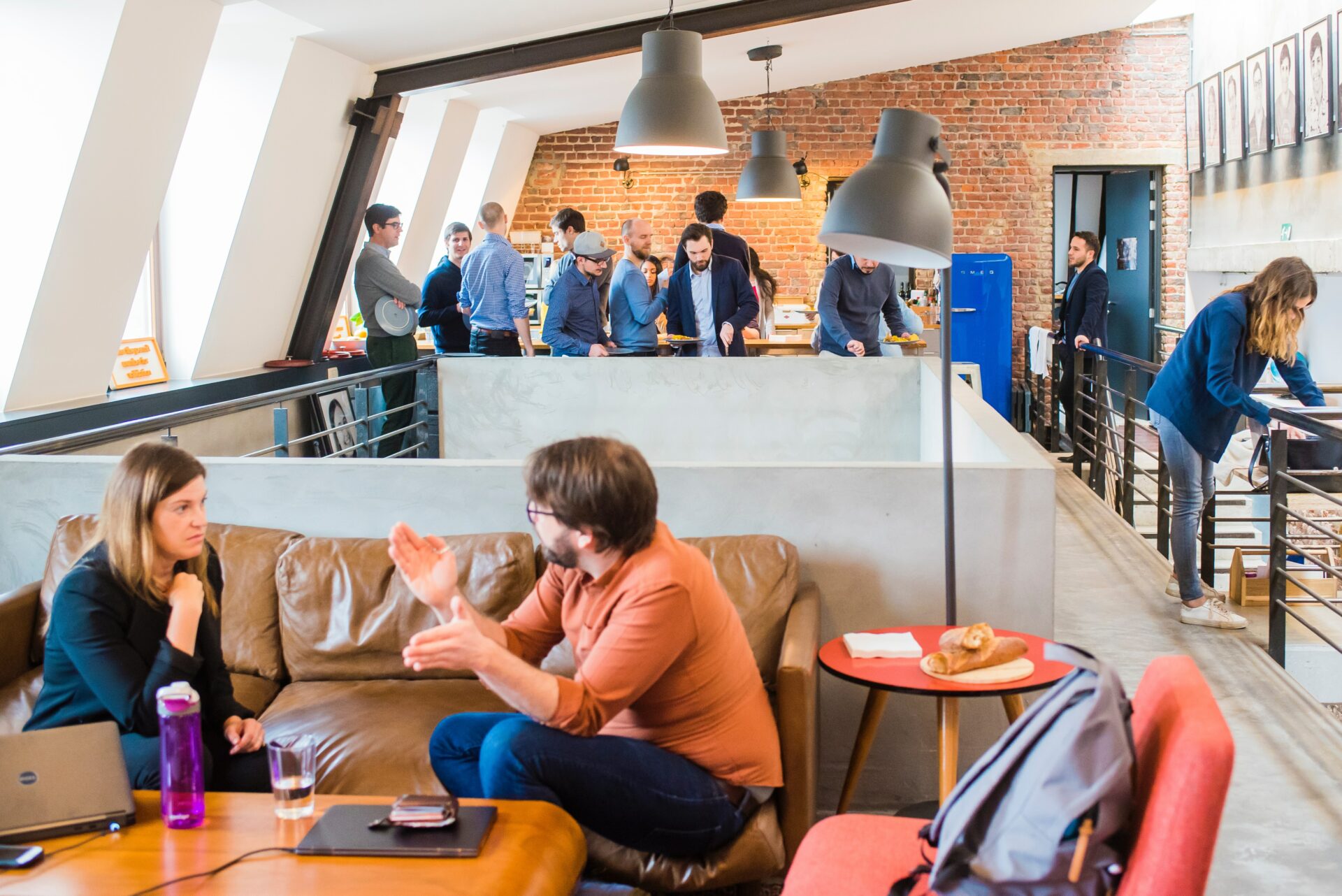Old World, New Drive: Entrepreneurship in Europe
Government policy can play a large role in supporting entrepreneurship in service of human-centered goals. An environment that attracts innovators and brings them together with investors and experienced incumbents as role models and mentors would seem to be the example to follow. Clearly, that place is Silicon Valley. Or is it?
While a thriving startup culture requires enterprising individuals and a tech infrastructure, government support plays a decisive role in creating a successful entrepreneurial ecosystem. The (digital) entrepreneurship and cooperation between stakeholders required to master the global challenges we face demand decidedly inclusive institutions and systems. Here, we look at policy-related aspects of entrepreneurship, which are explored in greater depth in the paper Entrepreneurship 4.0: Setting the Stage.
The power of inclusive economies
Innovation is typically a convergence of technologies and stakeholders. As detailed in “Why Nations Fail – The Origins of Power, Prosperity, and Poverty” (Daron Accmoglu and James A. Robinson 2012), the first industrial revolution was born in Britain because it was socio-politically more favorable toward fair competition and cooperation than countries in continental Europe. Later, mass adoption of the automobile depended on the pneumatic tire, paved roads and governments to regulate traffic.
In “Why Nations Fail,” the authors differentiate between extractive and inclusive economic systems, claiming that extractive regimes “… will not sustain growth that requires technological change, but rather growth based on existing technologies.” They cite the former Soviet Union as an example of an extractive system that can drive growth for a limited period before collapsing. Industrialization under Joseph Stalin brought dizzying progress, but was doomed to hit a wall.
The key takeaway is that the top-down rule aimed at extracting maximum value while suppressing initiative, ingenuity and cooperation between stakeholders is dangerous for economic sustainability.
Beyond shareholder value
It’s easy to forget that devotion to shareholder value above all else is a relatively new phenomenon. The Friedman Doctrine, espousing laissez faire capitalism as long as it avoided “deception or fraud,” was a response to the – then seemingly thriving – Soviet planned economy.
Paradoxically, the current fixation on shareholder value supports an extractive approach. It stifles both breakthrough innovation and sustainable processes.
As detailed in the recent book “Reimagining Capitalism in a World on Fire” (Rebecca Henderson 2020), what is required to set the stage for entrepreneurship in pursuit of meaningful goals for the future of humankind and the planet is a form of free enterprise that goes beyond shareholder value to include value added for society and the environment. Today’s potential entrepreneurs are global-minded, geographically mobile and technologically savvy – they have the mindset to realize Henderson’s vision.
Estonia: Embracing a multicultural digital future
The small Baltic nation ranks among the fastest-growing economies in the EU and scores high in the UN Human Development Index. Estonian citizens are covered by universal healthcare insurance. University education is free, and the country has the longest paid maternity leave in the OECD. Residents enjoy civil liberties and freedom of speech. In 2005, Estonia became the first state to hold elections via the Internet.
Estonia has introduced E-Residency, which helps facilitate incorporation of companies for people who are not physical residents of the country, as well as setup of banking, payment processing and taxation. It also offers a Nomad Visa that allows tech talent to freely work from anywhere in the country.
Under the heading Startup Estonia, the country stages events, helps create marketing and branding strategies and offers training for startups. Estonia also offers a Startup Visa to further encourage foreign entrepreneurs to set up shop in Estonia.
Global tech players that began in Estonia include customer relationship management (CRM) company Pipedrive, which is ranked on the Forbes Cloud 100 list, the pioneering Web conferencing service Skype as well as TransferWise, an online money transfer company now valued at US$ 5 billion.
France: An old economy encouraging new investment
France introduced its research tax credit (Crédit d’Impôt Recherche) in 2008. Based on R&D expenses incurred by companies subject to corporate income tax, it covers 30% of all R&D expenses up to €100m, and 5% above this threshold. And the rate can go up to 60% if the companies hire recently graduated PhDs or if they collaborate with academia.
For startups and SMEs, the tax credit covers a proportion of the costs of bringing an innovative product to market in addition to pure research, such as design and prototyping. Here, the rate is 20% up to €400k per year. If the company was founded less than eight years ago and its R&D expenditure accounts for at least 15% of its total spending, the “Jeune Entreprise Innovante” (Innovative New Company) status exempts it from social contributions on research personnel salaries and provides significant income tax cuts (100% for the first year of positive income and 50% the second year).
French startups include the FinTech Kard, which caters to young people and offers to enable control over their money through a bank that is cool, social and free.” The telehealth company Qare offers a care and diagnostics app, while FinTech Epsor helps employees manage their savings and investments with a robo-adviser.
Germany: Transitioning from traditional industry to high-tech
The country’s policies to build a thriving high-tech innovation scene have earned it the No. 1 position in Bloomberg’s 2020 Innovation Index. The ranking is based on scores in seven areas: R&D Intensity, Patent Activity, Tertiary Efficiency, Manufacturing Value-added, Productivity, High-tech Density, Research Concentration.
Berlin launched its first High-Tech Strategy in 2006 and currently pursues the High-Tech Strategy 2025, divided into three main categories: Societal Challenges, Open Innovation and Venture Culture, Germany’s Future Competencies. Germany also maintains a National Agency for Women Start-ups Activities and Services.
The country’s most successful recent startups include Aipark, whose app uses artificial intelligence (AI) to help drivers find parking places. Superseven, which produces recyclable and biodegradable packaging, and LiveEO, which efficiently monitors critical infrastructure via satellite, are further examples.
Learning from leading startup magnets
Many policy considerations will be different for other countries depending on size, geographical location and history. But the underlying logic remains the same: entrepreneurialism needs favorable policies to succeed and entrepreneurial global citizens will go wherever the best conditions are in place. This is not trivial. As AI, big data and IoT become key elements of more and more industries, tech talent and innovation will mean the difference between winning and losing in the global marketplace. In addition, the global issues humankind faces demand radical and exponential development on multiple fronts. The world needs entrepreneurs – and entrepreneurs need policy support.
Mike Durrie, Fellow and Chief Content Officer, The Digital Economist and Aanandita Gahlot, Entrepreneur in Training, The Digital Economist.





